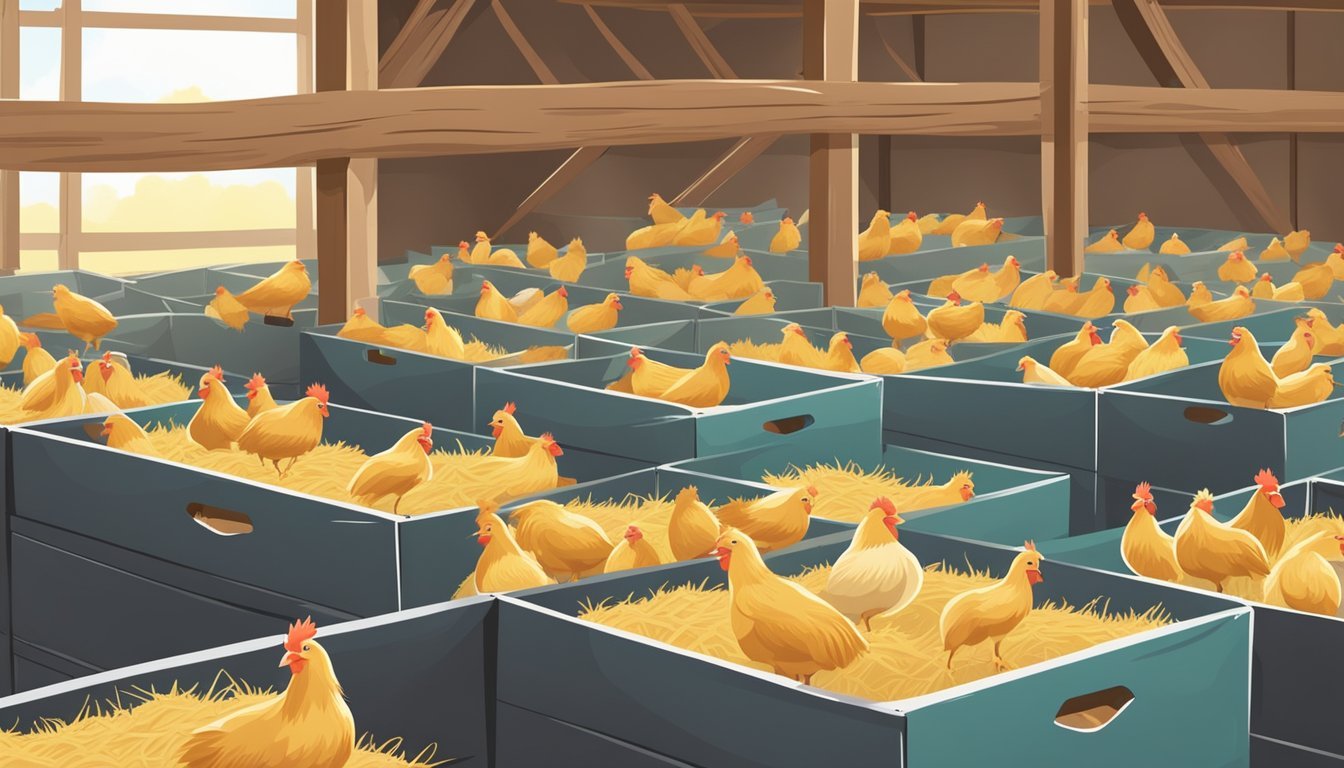Chicken owners who keep chickens in their yards need to have chicken nesting boxes. They give hens a clean, cozy, and private place to lay their eggs that is also safe from animals that might try to eat them. By teaching hens to lay their eggs in a certain spot, nesting boxes help keep the coop clean and organized.
This makes getting the eggs easy and lowers the chance of getting dirty or broken eggs. A good nesting box also makes hens less stressed, which makes them lay more eggs and is better for their health in general.
This blog post will talk about the different kinds of nesting boxes, the most important things to look for, and how to place and take care of them so that your hens have the best place to lay their eggs.
Benefits of Proper Nesting Boxes
Using the right nesting boxes will greatly improve egg production, cleaning, and the health of your hens. They give hens a safe, cozy place to lay their eggs that keeps the eggs clean and undamaged. These boxes also help keep the coop clean by getting the hens to lay their eggs in one place. This lowers the chance that eggs will be broken or dirty.
This makes getting eggs easier and less stressful for both the hens and the people who keep them. Hens are less worried when they have safe and private nesting boxes. This means they lay better eggs more often. This makes the hens healthier and increases the number of healthy eggs they lay, which makes raising chickens easier for people who do it.
A Guide to Chicken Nesting Boxes
Choosing the Right Nesting Box Design
Picking the right style of chicken nesting boxes is important for your hens and egg collection. Each plan has good and bad points. Each hen has its own room in a nesting box, which lowers stress and competition. It takes a while to clean them, but they are great for small flocks or places with limited room. Shared nesting boxes are better for bigger flocks because they let more hens lay eggs in the same area.
You don’t have to use as many materials to clean them, but they may cause more egg damage and competition. The nesting boxes are built into the structure of the coop, which saves room and makes it more stable. They usually have outdoor doors that make it easier to clean and collect eggs, but they are less adaptable if you need to change the way your coop is set up.
Moving and adjusting the separate nesting boxes as needed gives you more options and makes it easy to replace or improve them. When picking out a nesting box design, think about how much room you have, how easy it is to clean, and how easy it is for your birds to get to.
Materials and Construction
Picking the right materials for breeding boxes is important to make sure they last, are comfortable, and are easy to clean. Wood, plastic, and metal are all common choices, and each has its own benefits. Wood naturally insulates and is easy to work with, but it needs to be cared for regularly to keep it from rotting and getting bugs.
Plastic boxes are light, easy to clean, and won’t attract pests, but they might not be as warm as wood boxes. Metal boxes are strong and easy to clean, which makes them great for harsh regions. However, they might not be warm enough for the hens to be comfortable.
For DIY nesting boxes:
- Choose Material: Make your choice based on the weather, your price, and how easy you want to keep it up.
- Cut and Measure: Cut the base, back, sides, and top out of board. Change the sizes as needed.
- Put together: Securely attach the back to the base, then add the sides and top.
- Front Lip: Put a 4-inch strip on it to stop the egg from moving.
- Ventilation: Drill holes to let air move and get rid of moisture.
- Line the bedding with soft material to make the hens feel good.
- Installation: Put it somewhere quiet, easy to get to, off the ground, and away from places where birds like to stay.
When choosing what to buy, material, size, and how easy it is to clean should come first. Make sure the boxes are strong, don’t need much care, and are comfortable for the hens.
Maintaining Happy Hens: The Importance of Well-Designed Nesting Boxes
Nesting boxes that are well-made are very important for keeping your hens healthy and happy. They give the birds a safe and cozy place to lay their eggs, which lowers their stress and encourages natural behavior.
Keeping an eye on your hens’ behavior and making changes to their laying boxes as needed can greatly enhance their health. When hens are happy, they lay stronger eggs and keepers have a better time.



